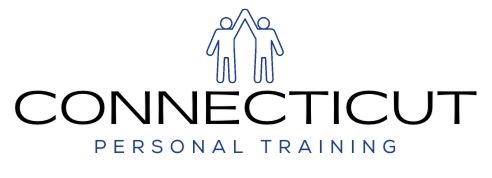Everyone needs the correct nutrients, but athletes who strain their bodies to the maximum need them more. A proper diet can optimize performance and help marathon runners, weightlifters, and soccer players attain their goals.
How is “proper nutrition” defined? It goes beyond calorie counting and fad diets. Instead, you must understand athletes’ dietary needs and adjust your diet. We’ll cover everything from macronutrients like carbohydrates and proteins to micronutrients that optimize athletic performance.
Understanding Macronutrients: Carbohydrates, Proteins, and Fats
Understanding macronutrients is essential for athletic performance. Our diet’s carbs, proteins, and lipids provide energy and assist muscle growth and repair.
The body’s main energy source is carbohydrates. Grains, fruits, vegetables, and legumes contain them. Simple sugars provide short-term energy while complex carbohydrates supply lasting energy. During intensive training, athletes require carbs to replace glycogen.
Muscles and tissues are made of proteins. Sources include meat, poultry, fish, dairy, legumes, nuts, and seeds. Protein stimulates muscle growth and repairs muscular tissue after exercise.
Fats provide energy for athletes throughout extended or low-intensity workouts. Avocados, nuts, oils, and fatty fish include beneficial fats that control hormones, optimize food absorption, and protect organs.
Recommended Daily Intake of Each Macronutrient for Athletes
To improve performance and health, athletes must know the required daily macronutrient consumption. The body uses each macronutrient differently to fuel and recover.
For endurance and high-intensity activity, athletes rely on carbohydrates. The daily carbohydrate guideline is 3-5 grams per kilogram of body weight. This is possible with whole grains, fruits, veggies, and legumes.
Muscle repair and growth require proteins. An athlete should ingest 1.2-2 grams of protein per kilogram of body weight daily. Lean meats, poultry, fish, dairy, eggs, beans, and lentils are good sources.
Activity level, training goals, and metabolism rate affect individual demands. Visiting a qualified dietitian or sports nutritionist can help you get more personalized advice.
Proper nutrition involves a balanced diet with plenty of fruits, vegetables, and whole foods, while minimizing processed sweets and harmful fats.
The Role of Micronutrients in Athletic Performance
Micronutrients are essential for athletic performance. Macronutrients (carbohydrates, proteins, and fats) provide energy and build muscle, but micronutrients regulate biological activities.
Vitamins are important for athletes. Vitamin C, B vitamins, and D boost immunity, vitality, and bone health. Vitamin C protects cells from acute exercise stress as an antioxidant. B vitamins help produce red blood cells and transform food into energy. Vitamin D is essential for bone strength.
Minerals are another important micronutrient group. Iron and calcium are crucial for athletes. Iron helps transfer oxygen throughout the body, which is important during activity. Calcium aids muscle contraction and bone density.
Hydration and Electrolyte Needs for Athletes
Athletes need water and electrolytes to perform well and avoid dehydration. Water loss from sweating during exercise can lower physical and mental performance if not restored.
Besides drinking water, proper hydration needs restoring electrolytes lost through sweat. The body needs electrolytes including sodium, potassium, calcium, and magnesium for muscular contraction, neuron function, and fluid equilibrium.
Before, during, and after training or contests, athletes should drink fluids to stay hydrated. Be proactive and hydrate throughout the day, according to your body’s thirst cues.
During intense or lengthy workouts, electrolyte-containing sports beverages help replace fluids and minerals. Plain water may be sufficient for shorter exercises or less strenuous exercises like yoga or Pilates.
Sample Meal Plans for Different Types of Athletes (Endurance, Strength, etc.)
One-size-fits-all nutrition won’t work for high athletic performance. Athletes‘ nutritional needs vary by sport, training intensity, and goals. These sample meal plans are designed for endurance and strength athletes who run kilometers and lift weights.
Endurance runners and cyclists need carbs. Consume complex carbs like whole grains, fruits, and veggies throughout the day for energy. Chicken and fish are good lean proteins for muscle regeneration.
Strength athletes need protein to create and maintain muscle. Each meal should include lean meats, eggs, dairy, and plant-based alternatives like tofu or lentils. Remember healthy fats! Use avocados, almonds, and olive oil for best performance.
Power sports players who sprint or jump should eat carbs and protein before exercise. This is achieved by eating lean meats with full-grain bread or pasta.
Supplementation for Optimal Performance
To improve performance and recovery, athletes may use supplements in addition to a balanced diet. Supplementation should never replace complete foods or sufficient nutrition.
Before starting a supplement program, athletes should consult a doctor or dietician for specific suggestions based on their needs and goals. Here are some popular vitamins for athletes:
- Protein powders: These help repair and develop muscles and meet protein needs. High-quality and fast-absorbing whey protein is popular with athletes.
- Creatine: In weightlifting and sprinting, this compound boosts strength, power, and lean body mass.
- Omega-3 fatty acids: Fish oil supplements contain anti-inflammatory omega-3s that can aid recovery from intensive training.
- Vitamin D: Bone and immunological health depend on vitamin D levels. Indoor athletes and those in low-light regions may need supplements.
- B vitamins are essential for energy synthesis and metabolism, making them critical for athletic performance.
These vitamins may be helpful, but they are not miracle cures. They should always be part of a healthy diet, hydration, sleep, and exercise plan.
Bill Yeager, Owner of CT Personal Training in CT, is a leading success coach, speaker, inspirational writer, personal trainer and fitness enthusiast. He’s helped over 500,000 people worldwide become inspired to transform their lives most widely known for becoming a Body-for-Life Champion for the 2001 Challenge. He is a fitness entrepreneur, the author of several fitness articles, books and president of personal training companies in Connecticut, aids as an adviser to other fitness businesses nationwide, an Amazon international best-selling author of the book Unleash Your Internal Drive, and Facebook public figure. He has been personally coached by Tony Robbins, a fire walker, has been on several popular podcasts and the news including Sharkpreneur with Kevin Harrington, FOX, NBC, and ABC.






